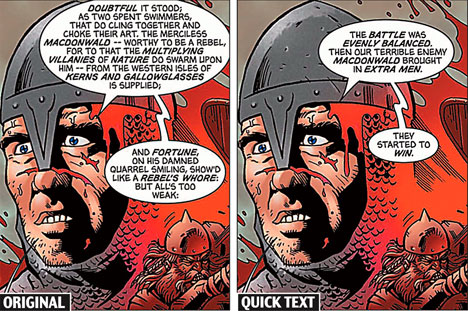Before clinical depression was first diagnosed, a person afflicted with the condition was referred to as melancholy. It was believed that our physical and emotional states were determined by the distribution of the four humours, or bodily fluids, each of which had a different effect if it fell out of balance. If you had an excess of black bile, for example, you were melancholic, and would seem moody and sad. Today, we understand this to be depression, but in Shakespeare’s time, the humours were the best science of the day, and the affliction was called melancholy.
Melancholy can be found throughout Shakespeare. Don John begins Much Ado About Nothing in a sadness. Hamlet is definitely depressed, and is often given the nickname The Melancholy Dane. You might argue that they both have reason to be. But Antonio’s first line of The Merchant of Venice, in fact the first line of the play, “In sooth, I know not why I am so sad,” leaves little doubt that Shakespeare was familiar with the concept of clinical depression by another name.
After Hamlet, perhaps the most famous melancholic in Shakespeare is Jaques from As You Like It. He is referred to in the play as “the melancholy Jaques” and even seems to take some pleasure in the description himself. From this, we might gather that he is depressed as well. But I would actually argue that he’s bipolar.
Bipolar disorder (which also used to be misdiagnosed as melancholy) is characterized by extreme mood swings between depression and bursts of manic energy. People with bipolar disorder used to be called manic depressive. And even though it wasn’t known about in Shakespeare’s time, Shakespeare must have been aware of different ways that “melancholy” affected certain people, and wrote Jaques as bipolar. How else can we explain the outburst by “the melancholy Jaques” in the beginning of Act 2, Scene 7:
A fool, a fool! I met a fool i’ the forest,
A motley fool; a miserable world!
As I do live by food, I met a fool;
Who laid him down and bask’d him in the sun,
And rail’d on Lady Fortune in good terms,
In good set terms, and yet a motley fool.
“Good morrow, fool,” quoth I. “No, sir,” quoth he,
“Call me not fool till heaven hath sent me fortune.”
And then he drew a dial from his poke,
And, looking on it with lack-lustre eye,
Says very wisely, “It is ten o’clock;
Thus may we see,” quoth he, “how the world wags:
“Tis but an hour ago since it was nine,
And after one hour more ’twill be eleven;
And so, from hour to hour we ripe and ripe,
And then from hour to hour we rot and rot,
And thereby hangs a tale.” When I did hear
The motley fool thus moral on the time,
My lungs began to crow like chanticleer,
That fools should be so deep-contemplative,
And I did laugh sans intermission
An hour by his dial. O noble fool!
A worthy fool! Motley’s the only wear.
Does that sound depressed to you? Does it sound neutral? Or does it sound manic? In addition to the numerous exclamation points, the exaggerated repetition (used as an emphatic) and run-on sentences (notice how many lines begin with “And”) seem to indicate manic speech patterns. Hamlet doesn’t have any speeches like that, or if he does, they are soliloquies, and can be more closely equated to the thoughts racing through his own mind than to his behavior in public.
Depression is marked by listlessness and inaction. Hamlet is almost defined by his inaction. He is withdrawn and other characters must come to him. But throughout As You Like It, Jaques actively seeks out relationships and interactions with the other characters, first with Amiens and the other lords, then with Touchstone (off-stage), then with the Duke Senior and his assembly, then with Orlando (!), then with Touchstone again, then with Ganymede/Rosalind (!!), and finally with Duke Frederick (!!!). He may be bitter and dismissive, but he can hardly be called aloof or withdrawn. When we first hear of Jaques, he is being mocked by his friends for his melancholy, but their story is of an extremely compassionate and sensitive soul who weeps for a wounded deer.
Jaques: Melancholic, Misunderstood, Bipolar.
Oh yeah, and Bottom from A Midsummer Night’s Dream clearly has adult ADHD with delusions of grandeur. A topic, perhaps, for another time.


